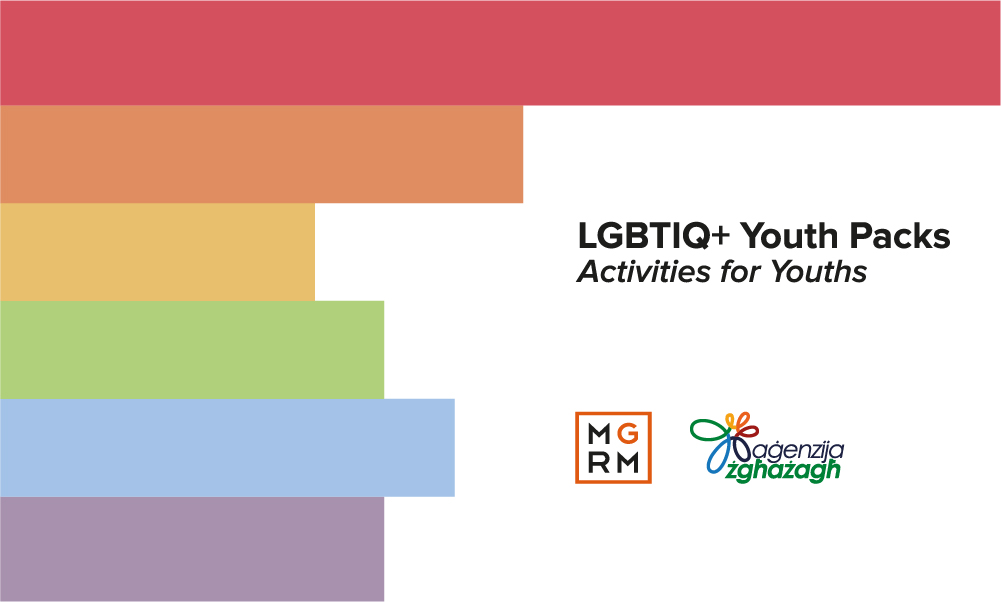
In the past years, MGRM has agreed with Aġenzija Żgħażagħ, the national Youth Agency, to provide support and financial resources for the Rainbow Support Services Youth Group. For many LGBTIQ+ young people, this group is the first place they truly feel they can be themselves. This in itself is no
small achievement however LGBTIQ+ youth groups are, of course, much more than this. Together, various professionals and LGBTIQ+ young people play a major role in tackling discrimination and changing the hearts and minds of others in society.
As such, MGRM and Aġenzija Żgħażagħ have developed this interactive and educational pack filled with various activities aimed at educating young people across Malta and Gozo. This step-by-step youth pack will help various professionals to deliver a session of choice aimed towards addressing everyday issues experienced by many LGBTIQ+ individuals. The main objective is to raise awareness and bring about social change.
There are 5 activities.
- Fantasy Trip
- Sexual Orientation Fantasy Trip
- LGBTIQ Acronyms
- Gender Bread Person
- LGBTIQ Timeline
Fantasy Trip: This fantasy trip will give the participants a chance to feel what it’s like to be born in a body that may not fit their gender identity – assuming that the listeners are not trans.
Sexual Orientation Fantasy Trip: This fantasy trip will give participants a chance to feel what it’s like to be hated and excluded because of their sexual orientation – assuming that the listeners are heterosexual.
LGBTIQ Acronyms: The goal of vocabulary isn’t to read definitions for every word but to allow your participants to highlight the words that they are most interested in learning about, and to clarify those words.
Gender Bread Person: To enable participants to understand the difference between gender identity, biological sex, and sexual orientation
LGBTIQ Timeline: The main aim for this activity is for participants to learn
about some of the main historical events that occurred in LGBTIQ+ history. This will give participants a better understanding of LGBTIQ+ culture and why activism is still important.
